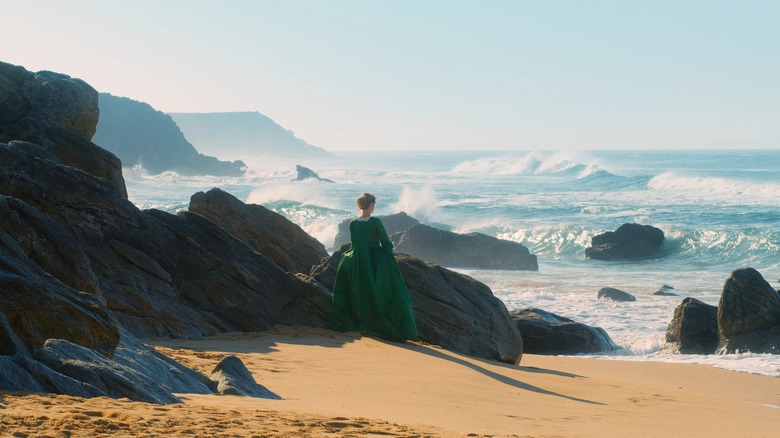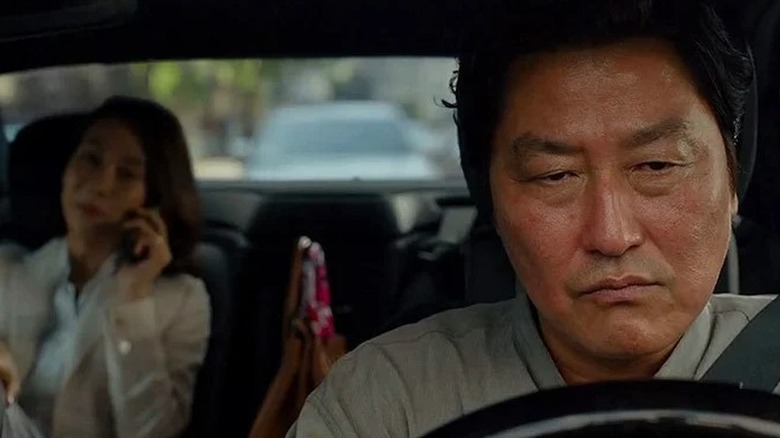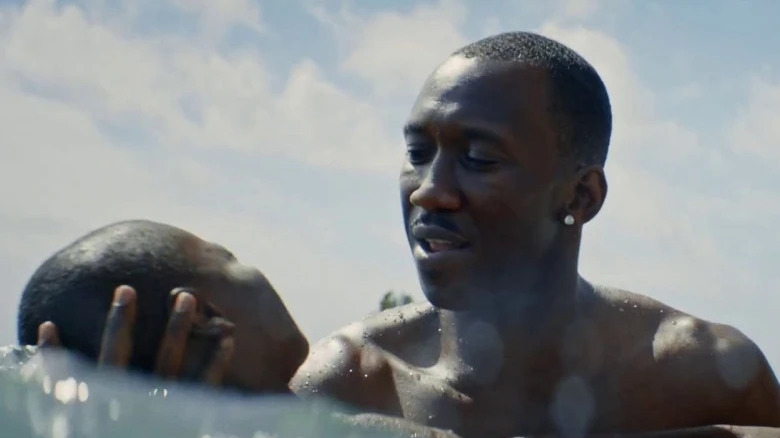
Another decade gone by, another Sight and Sound poll of the 100 best films ever made. Naturally, discourse has followed the release of the list, from the differences in the critics' and directors' polls to the dethroning of old champs "Citizen Kane" and "Vertigo" by Chantal Akerman's "Jeanne Dielman, 23 quai du Commerce, 1080 Bruxelles."
Some especially incendiary thoughts have come from the inclusion of four films released in the 2010s in the critics' poll. "Get Out" tied for 95th place, "Parasite" for 90th, and "Moonlight" for 60th. "Portrait of a Lady on Fire" came in at a whopping 30th place, just below "Taxi Driver" and over canonical classics like "Psycho," "Rashomon," and "Casablanca."
The question is, do such new films deserve spots on this list? Especially when the works of directors like Howard Hawks and Steven Spielberg are nowhere to be seen. For some, including Paul Schrader, the answer is a definite "no." I'll admit I have conflicted thoughts on this question. Let's consider the merits of both positions so that you, and I, can find the answer.
Yes, It's Too Soon

I'm personally conservative with doling out 5-star ratings. Even when a first-time watch bowls me over, it takes a rewatch, or at least a couple days' consideration, for me to use the M-word. That's why I'm sympathetic to the "yes" crowd, who think a film needs to marinate in the public consciousness before it can stand alongside titans. Time is one of the few objective measurements of art. If a movie is still talked about decades after its release, then its impact is undeniable no matter any one critic's thoughts.
I'm just as sympathetic to the preservationist instinct of the "yes" crowd. Media literacy is trending low — just take a look at Twitter. There's an ongoing resistance to watching anything without a Marvel Studios logo in front of it. Worse, the studio stewards of cinema are suppressing its history. If older films are displaced by newer ones, that can feel like vindication for those who don't care to learn about the medium's history or broaden their horizons. I'm with Marty: "Study the old masters. Enrich your palette. Expand the canvas. There's always so much more to learn."
Take "Vertigo," reduced from reigning champ in 2012 to runner-up in the latest poll. It's still a haunting watch in 2022 and evidence of how time affects a film's reputation. In 1958, Philip K. Scheuer of The Los Angeles Times felt it took "too long to unfold," and he wasn't alone. The film only started showing up in the Sight and Sound Top 10 come 1982.
The conclusion seems clear — time can vindicate a film or damn it, so we shouldn't be too hasty to judge. Conversely, this lends credence to the argument of the "no" crowd and the inherent virtue of the Sight and Sound poll: change.
No, Expand The Canon

Cinema is an evolving medium — every year brings hundreds of new releases, after all. Time changes which people are making films and who's watching them. The canon of such a fluid medium should not be so rigid. There's a reason Sight and Sound re-polls every ten years: these lists are not supposed to be set in stone. Instead, it reflects what the thoughts are in the moment.
Setting restrictions on which films should be included is faulty reasoning; you can't apply objectivity to people's thoughts on art. Moreover, what is the appropriate time limit on judging a film? A decade? Two? The top ten of the 2022 critics' poll features 2000's "In The Mood For Love" and 2001's "Mulholland Drive" — is it too soon for them to be so high as well? The answer to these questions is, again, wholly personal.
2022 isn't the first time new films have been honored by Sight and Sound either. 2002's critics poll featured "All About My Mother" (released in 1999) and "Chungking Express" (released in 1994). What has changed is whose voices are heard. In 2022, Sight and Sound polled 1,600 filmmakers, critics, and other experts/professionals -- twice as many as in 2012. Directors such as, say, Isabel Sandoval (a Filipina trans woman) who hadn't been heard even in 2012 got their say this time. This is why films both old ("Black Girl", "Killer of Sheep", etc.) and new are making their Sight and Sound top 100 debuts.
Denying the contributions of directors shaping cinema at the moment is cliquey behavior. So is decrying Sight and Sound for making their list more democratic. New voices are always emerging in cinema and keeping the canon static does a disservice to that unending evolution.
Read this next: 15 Best Films Of The 1930s
The post Sight and Sound Begs The Question, Is It Too Soon To Canonize A Film? appeared first on /Film.
